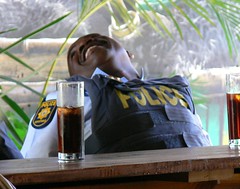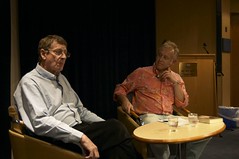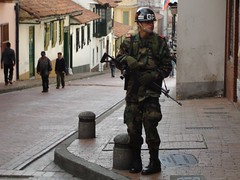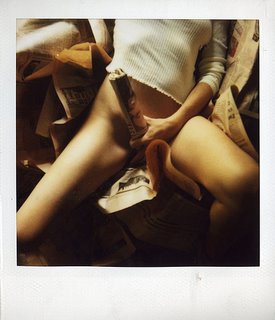Former South African politician and sociologist Van Zyl Slabbert recently gave a speech at Wits University under the theme, Am I African? Van Zyl warned on new myths and invented history threatening the country.Whiteness and Africaness is a theme close to Mhambi's heart.
Yolandi Groenewald was there and the report was posted on the Copy Ninja blog.
Former opposition leader Frederik Van Zyl Slabbert’s definition of himself is disarmingly simple: “I live in Africa; therefore I am an African.”
Slabbert said South Africa’s struggle past was being selectively used to establish a racially exclusive Africanism as “the new dominant ideology”. He pleaded with South Africans “not to fall for an invented history”. This included the myth that Cuban and Angolan forces had defeated the South African Defence Force at the Angolan battle of Cuito Cuanavale, and FW de Klerk’s “romanticised” claim that he had acted out of conscience in unbanning the ANC.
“A lot of the historians have invented events about the transformation of South Africa, just because it had the right feel and creates a feeling of nationalism,” he said. “By inventing the past or co-opting it ideologically, it becomes more difficult to avoid repeating mistakes and dealing with the problems of the present.”
Oppressive stability
Sounding like Rian Malan's "where you live is boring" just after his return to South Africa, Slabbert also spoke - hold onto your seats - about the oppressive stability of the apartheid regime.
“We now have a vibrant civil society, and this translates into a more consensual society,” he said. “Crime is also a form of civil society participation, a negative one, but riddled with entrepreneurs.”
It might be thought that with profound divisions emerging in the ANC, South Africa was at risk of a military coup or Zimbabwean dictatorship. This was unlikely to happen because of South Africa’s vibrant civil society and the South African habit of questioning government.
Oppresive stability, goodness me, Mhambi wonders how Britain would rate on Van Zyl's scale? Sphere: Related Content










